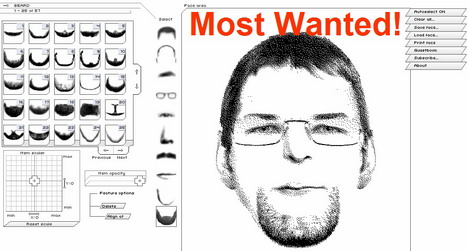The Langa Letter: 145,000 subscribers, 19,000 paid
Tips for converting free subscribers to loyal customers
One of the success stories in the category of “one man working at home, making money on the Internet” is the Langa Letter, a twice-weekly, high-tech newsletter produced by Fred Langa.
After his first full year of asking the 145,000 recipients of his free newsletter to buy subscriptions, Langa says more than 19,000 people sent in the $10 he asked for a longer, paid version. Not only that, but in January 2002 — approximately one year after beginning to sell subscriptions — he reports that 83 percent of those who originally subscribed had renewed. That’s a commendable number, especially when his renewal price had increased to $11 per year ($12 for new subscribers).
Langa, a former editor of Byte and Windows Magazine, shared with me his secrets of obtaining and retaining his loyal base of paying customers:
1. Promote through other publications. Langa puts a notice of his free newsletter at the end of every freelance article he writes for computer publications. He says 98 to 99 percent of his paying subscribers were originally recipients of the free version of his newsletter before they became paying subscribers.
2. Allow non-spam reader referrals. Langa’s Web site, Langa.com, provides an online form that readers (who want the publication to continue) can use to recommend his newsletter to friends. He refuses to spam — he doesn’t send newsletters to anyone unless they personally sign up — but the contact from an acquaintance has been a very effective means of obtaining new readers, he says.
3. Offer unique material. Langa draws upon his previous roles at his former monthly magazines to dig up technical news on Windows, PCs, and other industry topics. He adds to this mix a few comments from about 800 e-mails he receives every day from readers. Most are answered with a form reply, but he says the best ones build upon material he’s previously published, heightening reader interest.
4. Differentiate the free and the paid. Langa replaces the banner ads that appear in his free edition with new content that appears only in the paid edition. At the end of each free newsletter, he prints a list of the material that went only to paying subscribers. This provides readers with an incentive to switch, at a cost of “only 12 cents per issue!” as his site describes it.
Langa decided to ask for paying subscriptions at the end of 2000, after ad revenue in his free edition had dropped precipitously. His revenue in 2000 was more than $100,000 in ads, he says, but was only $20,000 in 2001.
Those of you with calculators at hand may be saying, “Ten dollars per subscription, times 19,000 subscribers, that’s $190,000.” Pretty good for a guy who left the rat race of New York’s Long Island and now runs his newsletter from his home near Portsmouth, N.H.
Langa points out that he spends more than $30,000 a year on high-bandwidth Web hosting and the e-mail service that manages his list of 145,000 recipients. In addition, he must pay for new PCs and other equipment for his home office.
Still, he’s left at the end of the day with a nice piece of change. It’s an accomplishment well worth celebrating after his years of trying to make a one-man newsletter viable. Langa wrote a chapter a couple of years ago for a book entitled “Poor Richard’s E-Mail Publishing.” In his essay, he sheepishly admitted that his original, cheapo e-mail service had intermittently hit recipients with dozens of copies of the same issue. Droves of readers canceled, a lesson Langa has converted into a conviction that money spent on more reliable services is money well spent.
“Poor Richard’s E-Mail Publishing”
– – – – – – – – – – – – – – – – – – – – – – – – – – – –
E-BUSINESS TECHNOLOGY REVIEW: GOOGLE’S SEARCH APPLIANCE
You say you’ve got a huge intranet and several company Web sites to search? Google.com has just announced a new “search appliance” that may handle your needs. It’s a Linux-based server, suitable for rack mounting, that Google says can index more than 200 file types, including Microsoft Office documents, PDF files, and HTML.
The product competes against offerings from AltaVista, Ask Jeeves, Verity, and others, including Google’s own hosted search services, which are billed monthly. The one-time price for the search appliance starts at $20,000 for a model that can index as many as 150,000 documents and runs to $250,000 if you need to index “millions and millions” of documents.
– – – – – – – – – – – – – – – – – – – – – – – – – – – –
LIVINGSTON’S TOP 10 NEWS PICKS O’ THE WEEK
1. End of an editor: Michael Kinsley resigns from Slate
2. British Telecom claims it owns a patent on linking
3. Three profitable e-businesses show how to do it
4. E-commerce sites must pay new tax on sales in Europe
5. New chip may make film and digital cameras obsolete
6. Lawrence Lessig gives developers free license models
7. The Web services future (part 1 of a useful series)
8. More on the growth of Web services (part 2 of 3)
9. Considering VisualStudio .Net vs. J2EE (part 3 of 3)
10. HTML tips: Making your deep Web content available
– – – – – – – – – – – – – – – – – – – – – – – – – – – –
WACKY WEB WEEK: HOW TO STOP TELEPHONE SOLICITORS
I suppose some degree of commerce would grind to a halt if telephone solicitors weren’t able to call people at home during the dinner hour. But that doesn’t make it any more pleasant. Now Steve Rubenstein, a writer for the San Francisco Chronicle, has proposed “Three Little Words” — based on his brief experience in a telemarketing operation — that would stop the nuisance for all time.
The three little words are “Hold on, please.” Saying this while putting down your phone and walking off –instead of hanging up immediately — would make each telemarketing call so time-consuming that boiler rooms would grind to a halt. When you eventually hear the phone company’s beep-beep-beep tone, you know it’s time to go back and hang up your handset, which has efficiently completed its task. This might be one of those articles you’ll want to e-mail to your friends.
Three little words that eliminate telephone soliciting:
– – – – – – – – – – – – – – – – – – – – – – – – – – – –
E-BUSINESS SECRETS: Our mission is to bring you such useful and thought-provoking information about the Web that you actually look forward to reading your e-mail.
ABOUT THE AUTHOR: E-Business Secrets is written by InfoWorld Contributing Editor Brian Livingston ( ). Research director is Ben Livingston (no relation). Brian has published 10 books, including:
Win a gift certificate good for a book, CD, or DVD of your choice if you’re the first to send a tip Brian prints: mailto: [email protected]




